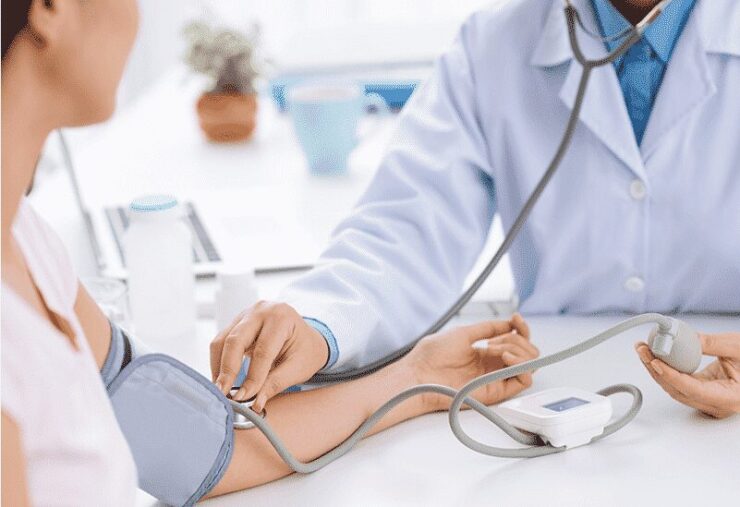It is no secret that health screening plays a crucial role in preventive healthcare, as it enables individuals to detect potential health issues before they become serious. By involving a series of tests and examinations that can help identify underlying health conditions, it provides the perfect opportunity for early intervention and treatment. Prioritizing health screening, therefore, allows individuals can take proactive steps towards maintaining optimal health.
This article explores the benefits of health screening, what happens during a health screening at a Raffles place (https://healthclinicgroup.com/), different types of health screenings and their significance, common health conditions detected through screenings, and more.
The importance of health screening

Health screening is a fundamental aspect of preventive care that helps individuals stay on top of their health and well-being. It serves as an early warning system, one that allows healthcare professionals to identify potential health issues before they progress to more severe stages. Regular health screenings enable doctors to detect conditions such as high blood pressure, high cholesterol, diabetes, and certain types of cancer in their early stages when they are most treatable. By identifying these conditions early, individuals have a better chance of successful treatment and improved outcomes.
Moreover, health screenings play an essential role in disease prevention and health promotion. They provide an opportunity for healthcare professionals to educate individuals about lifestyle modifications that can reduce the risk of developing certain diseases. By being made aware of their health status through screenings, individuals can make informed decisions about their lifestyle choices, such as adopting a healthier diet, increasing physical activity, and quitting smoking.
What happens during a health screening
During a health screening at a Raffles place, individuals can expect a series of tests and evaluations to assess their overall health status. The specific tests conducted may vary based on factors such as age, gender, and personal medical history. Generally, a health screening involves measurements of vital signs such as blood pressure, heart rate, and body mass index (BMI). Blood tests may be performed to evaluate cholesterol levels, blood sugar levels, and liver function. Additionally, screenings for certain types of cancer, such as breast, cervical, and prostate cancer, may be performed as well.
In addition to physical examinations and laboratory tests, health screenings in Singapoore often involve discussions with healthcare professionals about medical history, lifestyle factors, and any existing symptoms or concerns. These conversations provide an opportunity for individuals to share relevant information and for healthcare professionals to provide personalized recommendations and guidance.
What to do before a health screening

To ensure accurate and comprehensive results, it is important to prepare adequately before a health screening. Here are some steps to follow:
- Review the guidelines: Familiarize yourself with any specific instructions provided by the healthcare facility conducting the screening. This may include guidelines on fasting, dietary restrictions, or medication adjustments.
- Provide accurate information: Complete any pre-screening questionnaires honestly and thoroughly. Be prepared to discuss your medical history, including any existing conditions, surgeries, or medications you are taking.
- Fasting requirements: Certain screenings, such as cholesterol and blood glucose tests, require fasting beforehand. You should follow the fasting instructions provided by your healthcare provider to ensure accurate results.
- Bring necessary documents: Remember to bring your identification documents, insurance information, and any relevant medical records or previous test results to the screening appointment. This will help healthcare professionals gain a comprehensive understanding of your health history.
Where to go for a health screening in Singapore
Health screenings can be conducted at various healthcare facilities, including hospitals, clinics, diagnostic centers, and community health centers. The availability and specific types of screenings may vary depending on the location and healthcare system. It is recommended to consult with a primary care physician who can guide you to the appropriate facility based on your specific needs and medical history.
In some cases, health screenings may be offered as part of community outreach programs or workplace wellness initiatives. These opportunities can provide convenient and accessible options for individuals to prioritize their health.
Different types of health screenings

Health screenings encompass a wide range of tests and evaluations. Some commonly conducted health screenings include:
- Blood pressure screening: This test measures the force of blood against the walls of the arteries and helps identify high blood pressure, a significant risk factor for heart disease and stroke.
- Cholesterol screening: This test evaluates the levels of cholesterol in the blood, including low-density lipoprotein (LDL) and high-density lipoprotein (HDL). High cholesterol levels can increase the risk of heart disease.
- Blood glucose screening: This test measures blood sugar levels and helps identify prediabetes or diabetes, a condition that affects the body’s ability to regulate blood sugar.
- Cancer screenings: These screenings include mammograms for breast cancer, Pap tests for cervical cancer, and prostate-specific antigen (PSA) tests for prostate cancer. Early detection of cancer through screenings can significantly improve treatment outcomes.
- Body mass index (BMI) assessment: This screening evaluates an individual’s weight in relation to their height and helps identify potential obesity or overweight issues.
Common health conditions detected through screenings
Some common health conditions that can be detected through screenings include:
- Hypertension: High blood pressure is a leading risk factor for heart disease and stroke. Regular blood pressure screenings can help identify hypertension and enable individuals to take necessary steps to manage their blood pressure.
- Hyperlipidemia: Abnormal levels of cholesterol and triglycerides in the blood can contribute to the development of cardiovascular diseases. Cholesterol screenings can identify individuals at risk and facilitate appropriate interventions.
- Diabetes: Blood glucose screenings can detect prediabetes or diabetes, enabling early management and lifestyle modifications to prevent complications associated with high blood sugar levels.
- Breast, cervical, and prostate cancer: Regular screenings such as mammograms, Pap tests, and PSA tests can help detect cancer in its early stages when treatment is most effective.
- Obesity: BMI assessments can identify individuals who are overweight or obese, allowing healthcare professionals to provide guidance on weight management and lifestyle changes.
By detecting these conditions early through screenings, individuals can take proactive steps to manage their health and reduce the risk of complications associated with these conditions. For example, regular mammograms can detect breast cancer at an early stage when it is more treatable. Similarly, colonoscopies can identify precancerous polyps, enabling their removal before they develop into cancer.
So, what are you waiting for? Prioritize preventive care and make your health a priority today. Schedule your health screening at the Health Advisory Clinic to take control of your well-being.

